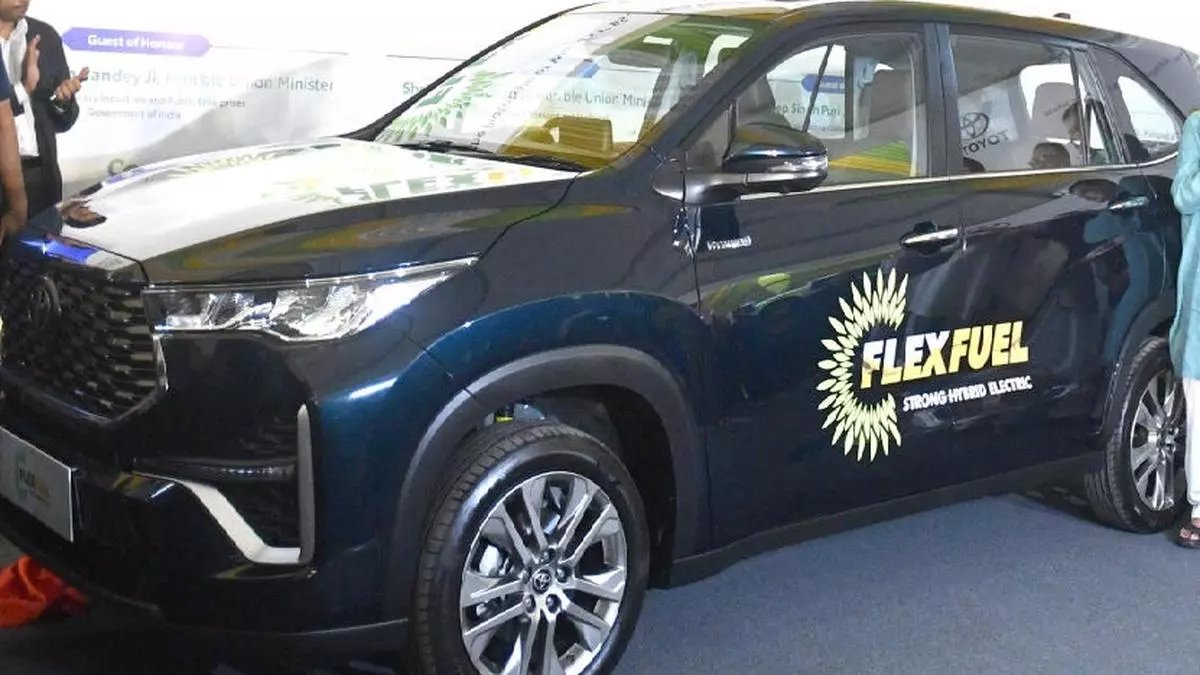The government is likely to push a multi-pronged policy approach to promote flexible fuel vehicles— on the lines of Brazil — and bring them at par with EVs as India pursues avenues to decarbonise the economy and become a global hub for green energy services and products.
The thrust on flex fuel vehicles (FFVs) is crucial as, unlike the electric vehicle supply lines, this ecosystem has the least influence from China.
Policy push
businessline spoke with multiple sources in the government who confirmed that this policy push on FFVs include, among others, reducing the Goods & Services Tax (GST), offering policy support to crops such as maize and sweet sorghum to boost ethanol production and incentives to consumers who opt for such vehicles.
“Besides Brazil, India has an opportunity to become a major FFV player and the government’s push to Global Biofuel Alliance (GBA) shows that. First is to bring them at par with EVs. FFVs incur a GST of 28 per cent, against EVs 5 per cent. We will discuss this with Finance Ministry,” a top official said.
- Read:More policy intervention needed for faster adoption of flex-fuel vehicles
The official pointed out that promoting FFVs also aligns with The Lifestyle for Environment (LiFE) initiative introduced by Prime Minister Narendra Modi at COP26 in Glasgow. Creating an ecosystem for FFVs also resonates with Modi’s thrust on recognising importance of “resilience and reliability in global supply chains” and “boosting multilateralism”.
Ethanol production
Another top official said the government is already working on increasing ethanol production via maize. “We are also looking at sweet sorghum. More crops will be considered for which R&D is going on so that India’s food security is not compromised,” he added.
Even if FFVs run on just 30 per cent ethanol blended petrol, the gains will be substantial considering India spends more than $120 billion annually to procure fossil fuels.
Currently, India’s ethanol production capacity is around 1,683 crore litres, which is more than sufficient to meet the 20 per cent blending mandate till October 2026.
Manufacturing hub
Another top official said that India is in a unique position to emerge as the manufacturing hub for affordable and competitive green energy products and services catering to least developed countries, particularly in the global south. It can leverage its expertise in renewables and biofuels to provide markets for its growing domestic manufacturing base.
Sources said that Brazil is the best example for India to follow on FFVs, which currently comprises almost 90 per cent of the South American country’s light-duty vehicle fleet. The blending mandate is 27 per cent on a volume basis.
Following the launch of the GBA last year during the G20 summit in India, Brazil has now come out with its new industry policy targeting to increase biofuels share by 50 per cent in the transport energy mix by 2033.




